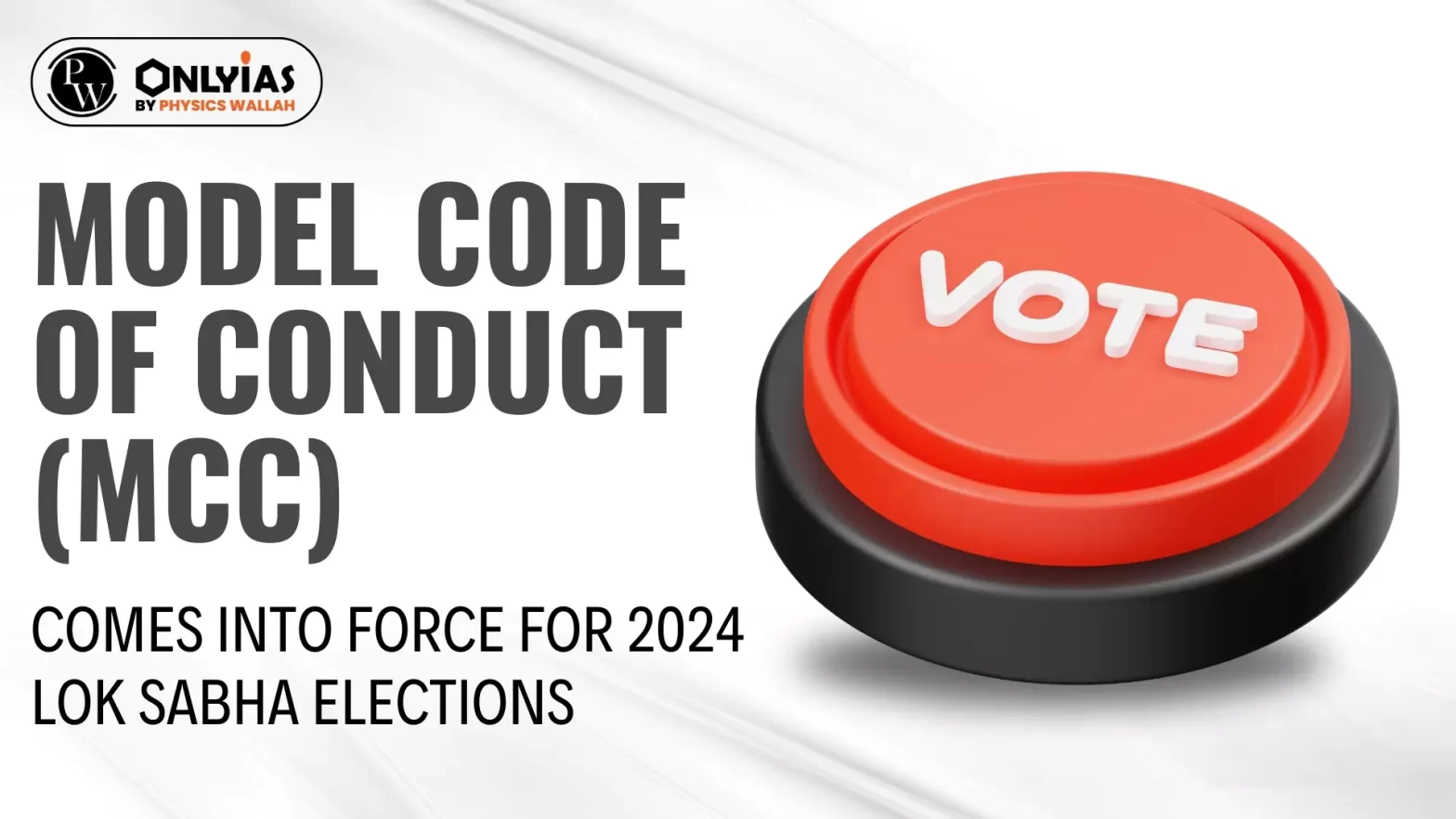![]() 18 Mar 2024
18 Mar 2024

This editorial is based on the news “Model Code of Conduct comes into force for 2024 Lok Sabha elections: What does it mean?” which was published in the Indian Express. Model Code of Conduct (MCC) comes into force for 2024 Lok Sabha elections.
| Relevancy for Prelims: Model Code of Conduct (MCC), Lok Sabha Election, Election Commission Of India, and Awareness Programme On EVMs And VVPATs.
Relevancy for Mains: Salient features of the Representation of People’s Act. |
|---|
Example of Punitive Action by ECI:
|
|---|
As India gears up for the next general elections, the enforcement of the MCC underscores the commitment to conducting free and fair elections
| Prelims PYQ (2017):
Consider the following statements: 1. The Election Commission of India is a fivemember body. 2. Union Ministry of Home Affairs decides the election schedule for the conduct of both general elections and bye-elections. 3. Election Commission resolves the disputes relating to splits/mergers of recognized political parties. Which of the statements given above is/are correct? (a) 1 and 2 only (b) 2 only (c) 2 and 3 only (d) 3 only Ans: (d) |
|---|
| Must Read | |
| NCERT Notes For UPSC | UPSC Daily Current Affairs |
| UPSC Blogs | UPSC Daily Editorials |
| Daily Current Affairs Quiz | Daily Main Answer Writing |
| UPSC Mains Previous Year Papers | UPSC Test Series 2024 |
<div class="new-fform">
</div>